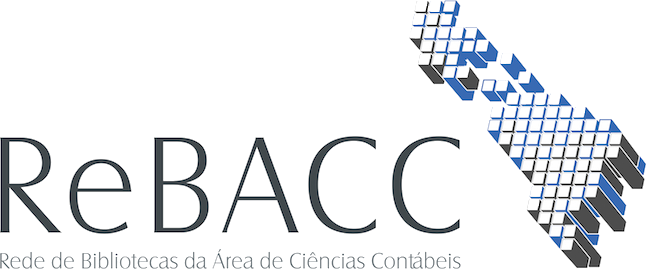Use este identificador para citar ou linkar para este item:
http://rebacc.crcrj.org.br/handle/123456789/1535| metadata.atena.dc.title: | HIATOS DE RACIONALIDADE E DECISÕES GERENCIAIS: PERSPECTIVAS SOBRE A “CAIXA PRETA” DO PROFISSIONAL DE CONTROLADORIA Gaps rationality and managerial decisions: perspectives on the "black box" of the controllership practitioner |
| metadata.atena.dc.creator: | Antonio Gualberto Pereira; Universidade Federal da Bahia Adriano Leal Bruni; Universidade Federal da Bahia José Bernardo Cordeiro Filho; Universidade Federal da Bahia |
| metadata.atena.dc.date.issued: | 2014-11-12 |
| metadata.atena.dc.publisher: | REVISTA DE CONTABILIDADE DO MESTRADO EM CIÊNCIAS CONTÁBEIS DA UERJ |
| metadata.atena.dc.description: | Com base no entendimento do homo economicus se desenvolveu a concepção de que os agentes econômicos buscam maximizar sua utilidade. Esta concepção acabou gerando um reducionismo exacerbado dos mecanismos psicológicos dos indivíduos, sendo estes representados como engrenagens pré-programadas a tomarem decisões maximizadoras de utilidade. O presente ensaio se propõe a analisar como os hiatos de racionalidade afetam as decisões gerenciais empreendidas pelo profissional de controladoria. A partir dos trabalhos de Simon e, posteriormente, dos estudos empíricos desenvolvidos por Kahneman e Tversky passa-se a questionar esta suposta racionalidade e a própria figura do homo economicus. Diversos trabalhos publicados em periódicos internacionais destacam como as heurísticas eos vieses cognitivos contribuem para que os agentes econômicos nem sempre tomem decisões racionais. Oprofissional de controladoria ao se defrontar com decisões relativas à escolha de artefatos gerenciais pode ser impelido a tomar decisões não maximizadoras de utilidade por vieses cognitivos gerados pela assimetria de informação; a presença do efeito framing na escolha de custos de transação ou; a ocorrência de heurísticas quando do reconhecimento de custos irrecuperáveis (sunk costs).Palavras-chave: Hiatos de racionalidade; Teoria dos prospectos; Profissional de controladoria.ABSTRACTBased on the understanding of homo economicus was developed the idea that economic agents seek tomaximize their usefulness. This concept has led to an exaggerated reductionism of psychological mechanisms of individuals, which were represented as pre-programmed gears to make decisions maximizing utility. This essay proposes to examine how gaps affect the rationality of managementdecisions taken by the controllership practitioner. From the works of Simon and later empirical studies developed by Kahneman and Tversky going to question this figure itself and the presumed rationality of homo economicus. Several papers published in international journals highlight how heuristics andcognitive biases that contribute to the economic agents do not always take rational decisions. The controllership practitioner when faced with decisions regarding the choice of management artifacts can be compelled to make decisions not maximizing utility by cognitive biases generated byinformational asymmetries, the presence of the framing effect in the choice of transaction costs or the occurrence of heuristics when the recognition of sunk costs (sunk costs).Keywords: Gaps of rationality; Prospect theory; Controllership practitioner. Based on the understanding of homo economicus was developed the idea that economic agents seek to maximize their usefulness. This concept has led to an exaggerated reductionism of psychological mechanisms of individuals, which were represented as pre-programmed gears to make decisions maximizing utility. This essay proposes to examine how gaps affect the rationality of management decisions taken by the controllership practitioner. From the works of Simon and later empirical studies developed by Kahneman and Tversky going to question this figure itself and the presumed rationality of homo economicus. Several papers published in international journals highlight how heuristics and cognitive biases that contribute to the economic agents do not always take rational decisions. The controllership practitioner when faced with decisions regarding the choice of management artifacts can be compelled to make decisions not maximizing utility by cognitive biases generated by informational asymmetries, the presence of the framing effect in the choice of transaction costs or the occurrence of heuristics when the recognition of sunk costs (sunk costs). Keywords: Gaps of rationality; Prospect theory; Controllership practitioner. |
| metadata.atena.dc.identifier.uri: | http://rebacc.crcrj.org.br/handle/123456789/1535 |
| metadata.atena.dc.identifier: | http://www.atena.org.br/revista/ojs-2.2.3-06/index.php/UERJ/article/view/1295 |
| Aparece nas coleções: | Artigos - Atena |
Arquivos associados a este item:
Não existem arquivos associados a este item.
Os itens no repositório estão protegidos por copyright, com todos os direitos reservados, salvo quando é indicado o contrário.

